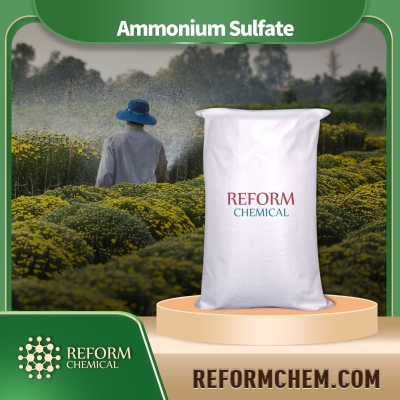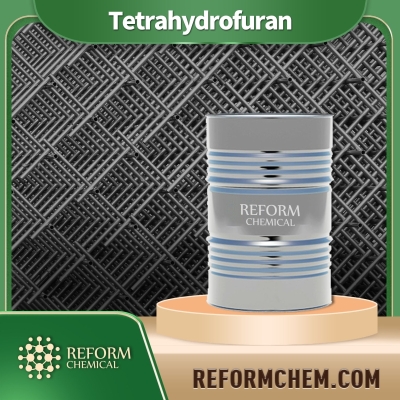-
Categories
-
Pharmaceutical Intermediates
-
Active Pharmaceutical Ingredients
-
Food Additives
- Industrial Coatings
- Agrochemicals
- Dyes and Pigments
- Surfactant
- Flavors and Fragrances
- Chemical Reagents
- Catalyst and Auxiliary
- Natural Products
- Inorganic Chemistry
-
Organic Chemistry
-
Biochemical Engineering
- Analytical Chemistry
-
Cosmetic Ingredient
- Water Treatment Chemical
-
Pharmaceutical Intermediates
Promotion
ECHEMI Mall
Wholesale
Weekly Price
Exhibition
News
-
Trade Service
Penoxsulam is the best product among herbicides in rice fields, covering all major rice-growing countries in the world
.
Penoxsulam was "flying fast" at the beginning of its listing, and the market has stabilized in recent years
.
On September 22, 2017, the compound patent of Penoxsulam in China expired.
At present, there are more than 20 products registered in China and nearly 600 products in field trials
.
Thousands of troops flock to the single-plank bridge, and the "blowout" situation is accumulating.
It is foreseeable that after the patent expires, the market competition for penoxsulam will increase geometrically
.
Whether it is the original company Dow AgroSciences, or many non-patented product manufacturers at home and abroad, they are planning the future development strategy of penoxsulam, adjusting their angle and strength to target the market
.
At present, the penoxsulam market we are familiar with is mainly from rice.
However, half of the penoxsulam market is given by the "non-crop market", and "medicinal fertilizer" is its important application
.
Paddy Field Ace Herbicide World-class single product Penoxsulam is the ace product among paddy field herbicides, and is one of many successful products developed by Dow AgroSciences
.
As a herbicide for paddy fields, Penoxsulam is suitable for controlling annual gramineous weeds, broad-leaved weeds and sedges in dry direct seeding, direct seeding in water and transplanted rice fields.
One application basically controls all season weeds
.
At the same time, Penoxsulam is safe for rice and subsequent crops
.
Due to its excellent performance, penoxsulam has grown rapidly since its launch in 2004.
2007 to 2010 was the golden period for the development of penoxsulam.
The market grew rapidly and the compound annual growth rate of sales was as high as 92.
6%
.
Penoxsulam is suitable for most major rice producing countries in the world, covering Europe, Asia, America and Africa
.
In 2014, Penoxsulam's global sales reached 260 million U.
S.
dollars, and its performance in China is particularly outstanding.
It is a single product of 100 million yuan.
In the field of weeding in rice fields, almost no one knows "Daojie"
.
On the surface, the distribution of penoxsulam in the global market is mainly concentrated on rice; in fact, penoxsulam also has an eye-catching performance in non-agricultural fields
.
According to data, in 2013, penoxsulam's global sales were 255 million U.
S.
dollars, while sales in non-agricultural fields were 140 million U.
S.
dollars, which exceeded the sales for rice paddy alone
.
In non-agricultural fields, a large part of Penoxsulam is mixed with fertilizers to form "medicinal fertilizer", which is used for weeding in lawns, animal husbandry and other fields to enhance the sealing effect of weeds
.
The reason why many Penoxsulam compound products have won the top of the rice field herbicide market for several times is related to the overall layout of Dow AgroScience
.
Dow Agronomics has not only developed multiple single-dose products of penoxsulam, but also registered many compound products, laying a solid foundation for the market growth of penoxsulam
.
Since 2004, Penoxsulam has been registered on rice fields in many countries around the world, and has gradually introduced compound products with fertilizers, dicamba, 2,4-D, cyhalofop-butyl, etc.
, to expand crop applications Field
.
At present, Penoxsulam has obtained pesticide registration in more than 20 countries around the world
.
Up to now, there are 27 products registered in China for Penoxsulam (including subpackage registration)
.
Among them, there are 2 technical products, which are registered by Dow Agrochemicals and Huai'an Guorui Chemical Co.
, Ltd.
, and the content is 98%
.
As early as 2007, Dow AgroSciences of the United States registered 98% Penoxsulam technical and 25 g/L Penoxsulam (trade name: Daojie) in China, and entered the Chinese market in 2009
.
In 2015, Dow AgroSciences also registered 22% Penoxsulam (trade name: Nongdilong), 40% Pentafluorobutachlor (trade name: Inoyo), 60 g/L pentafluoro ? Cyhalofop (trade name: Inaki)
.
.
Penoxsulam was "flying fast" at the beginning of its listing, and the market has stabilized in recent years
.
On September 22, 2017, the compound patent of Penoxsulam in China expired.
At present, there are more than 20 products registered in China and nearly 600 products in field trials
.
Thousands of troops flock to the single-plank bridge, and the "blowout" situation is accumulating.
It is foreseeable that after the patent expires, the market competition for penoxsulam will increase geometrically
.
Whether it is the original company Dow AgroSciences, or many non-patented product manufacturers at home and abroad, they are planning the future development strategy of penoxsulam, adjusting their angle and strength to target the market
.
At present, the penoxsulam market we are familiar with is mainly from rice.
However, half of the penoxsulam market is given by the "non-crop market", and "medicinal fertilizer" is its important application
.
Paddy Field Ace Herbicide World-class single product Penoxsulam is the ace product among paddy field herbicides, and is one of many successful products developed by Dow AgroSciences
.
As a herbicide for paddy fields, Penoxsulam is suitable for controlling annual gramineous weeds, broad-leaved weeds and sedges in dry direct seeding, direct seeding in water and transplanted rice fields.
One application basically controls all season weeds
.
At the same time, Penoxsulam is safe for rice and subsequent crops
.
Due to its excellent performance, penoxsulam has grown rapidly since its launch in 2004.
2007 to 2010 was the golden period for the development of penoxsulam.
The market grew rapidly and the compound annual growth rate of sales was as high as 92.
6%
.
Penoxsulam is suitable for most major rice producing countries in the world, covering Europe, Asia, America and Africa
.
In 2014, Penoxsulam's global sales reached 260 million U.
S.
dollars, and its performance in China is particularly outstanding.
It is a single product of 100 million yuan.
In the field of weeding in rice fields, almost no one knows "Daojie"
.
On the surface, the distribution of penoxsulam in the global market is mainly concentrated on rice; in fact, penoxsulam also has an eye-catching performance in non-agricultural fields
.
According to data, in 2013, penoxsulam's global sales were 255 million U.
S.
dollars, while sales in non-agricultural fields were 140 million U.
S.
dollars, which exceeded the sales for rice paddy alone
.
In non-agricultural fields, a large part of Penoxsulam is mixed with fertilizers to form "medicinal fertilizer", which is used for weeding in lawns, animal husbandry and other fields to enhance the sealing effect of weeds
.
The reason why many Penoxsulam compound products have won the top of the rice field herbicide market for several times is related to the overall layout of Dow AgroScience
.
Dow Agronomics has not only developed multiple single-dose products of penoxsulam, but also registered many compound products, laying a solid foundation for the market growth of penoxsulam
.
Since 2004, Penoxsulam has been registered on rice fields in many countries around the world, and has gradually introduced compound products with fertilizers, dicamba, 2,4-D, cyhalofop-butyl, etc.
, to expand crop applications Field
.
At present, Penoxsulam has obtained pesticide registration in more than 20 countries around the world
.
Up to now, there are 27 products registered in China for Penoxsulam (including subpackage registration)
.
Among them, there are 2 technical products, which are registered by Dow Agrochemicals and Huai'an Guorui Chemical Co.
, Ltd.
, and the content is 98%
.
As early as 2007, Dow AgroSciences of the United States registered 98% Penoxsulam technical and 25 g/L Penoxsulam (trade name: Daojie) in China, and entered the Chinese market in 2009
.
In 2015, Dow AgroSciences also registered 22% Penoxsulam (trade name: Nongdilong), 40% Pentafluorobutachlor (trade name: Inoyo), 60 g/L pentafluoro ? Cyhalofop (trade name: Inaki)
.






